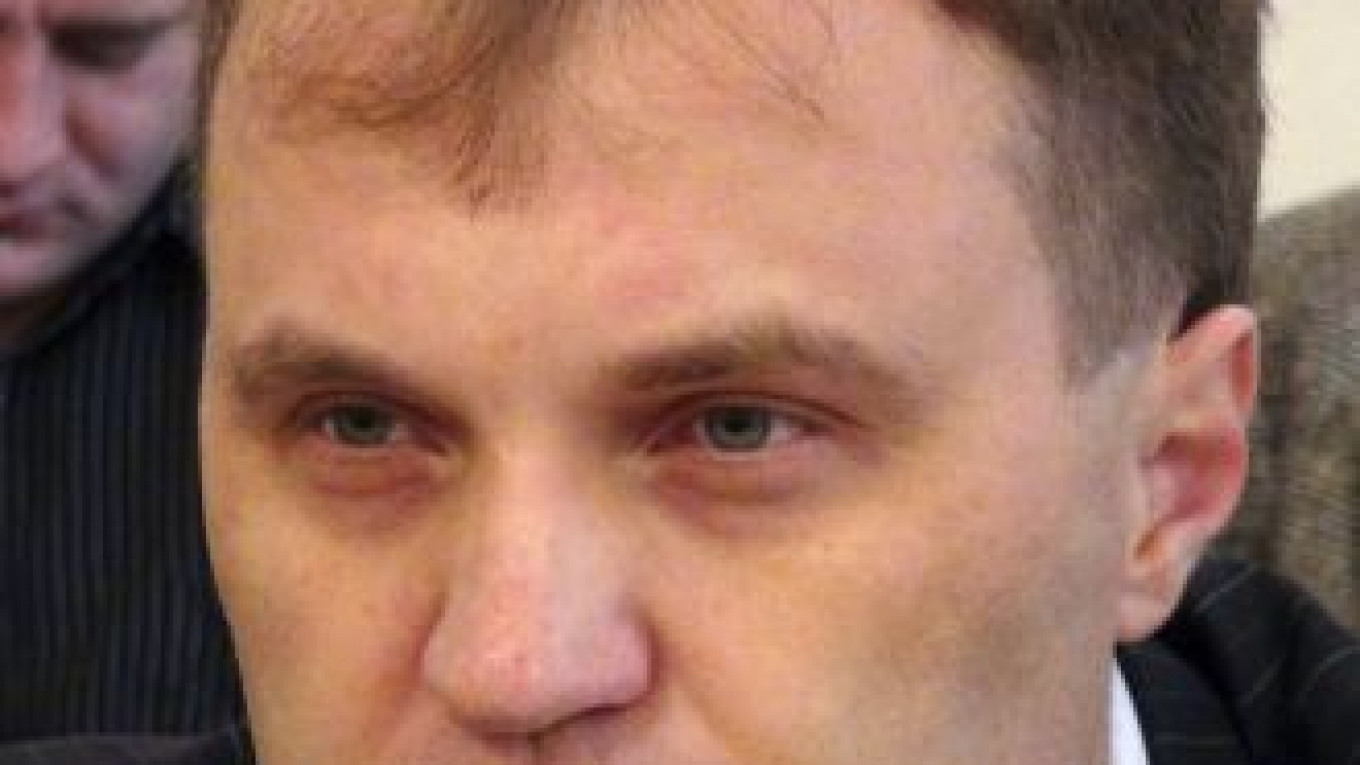TIRASPOL, Moldova — Former parliament speaker Yevgeny Shevchuk won the presidential election in Moldova's breakaway Transdnestr region, the territory's election authority said Monday. This is the second setback for regional power Russia within two months.
"According to preliminary results, he [Shevchuk] received 73.88 percent of votes while his opponent Anatoly Kaminsky received 19.67 percent," Central Elections Commission chairman Pyotr Denisenko told reporters.
Shevchuk competed against current speaker Anatoly Kaminsky, who was backed by Russia, in a runoff on Sunday.
Kaminsky's defeat comes after a Kremlin-endorsed candidate lost a presidential election in November in Georgia's rebel region of South Ossetia, leading to court battles, public protests and legal chaos.
Kaminsky indicated that he would not challenge the election results.
"I recognize Shevchuk's victory," he said.
President Igor Smirnov, who ran the mainly Russian-speaking territory as an independent fiefdom since it broke from Moldova and fought a brief war against Moldovan forces in 1992, was voted out in the first round on Dec. 11.
Not recognized internationally, Transdnestr relies on Russian financial and political support for its half a million people. Moscow still has about 1,500 troops in the strip of land along Moldova's eastern border with Ukraine.
Talks with Moldova failed to make progress under Smirnov, who insisted on sovereignty while Moscow suggested Transdnestr should be part of Moldova with a special status.
Shevchuk, 43, fell out with Smirnov in 2009 after suggesting constitutional reform to limit presidential powers. His campaign in this election focused on fighting corruption and nepotism.
Although he has not spoken in favor of rejoining Moldova, Shevchuk has called for compromise solutions that would make traveling and doing business easier for Transdnestrians.
A Message from The Moscow Times:
Dear readers,
We are facing unprecedented challenges. Russia's Prosecutor General's Office has designated The Moscow Times as an "undesirable" organization, criminalizing our work and putting our staff at risk of prosecution. This follows our earlier unjust labeling as a "foreign agent."
These actions are direct attempts to silence independent journalism in Russia. The authorities claim our work "discredits the decisions of the Russian leadership." We see things differently: we strive to provide accurate, unbiased reporting on Russia.
We, the journalists of The Moscow Times, refuse to be silenced. But to continue our work, we need your help.
Your support, no matter how small, makes a world of difference. If you can, please support us monthly starting from just $2. It's quick to set up, and every contribution makes a significant impact.
By supporting The Moscow Times, you're defending open, independent journalism in the face of repression. Thank you for standing with us.
Remind me later.






